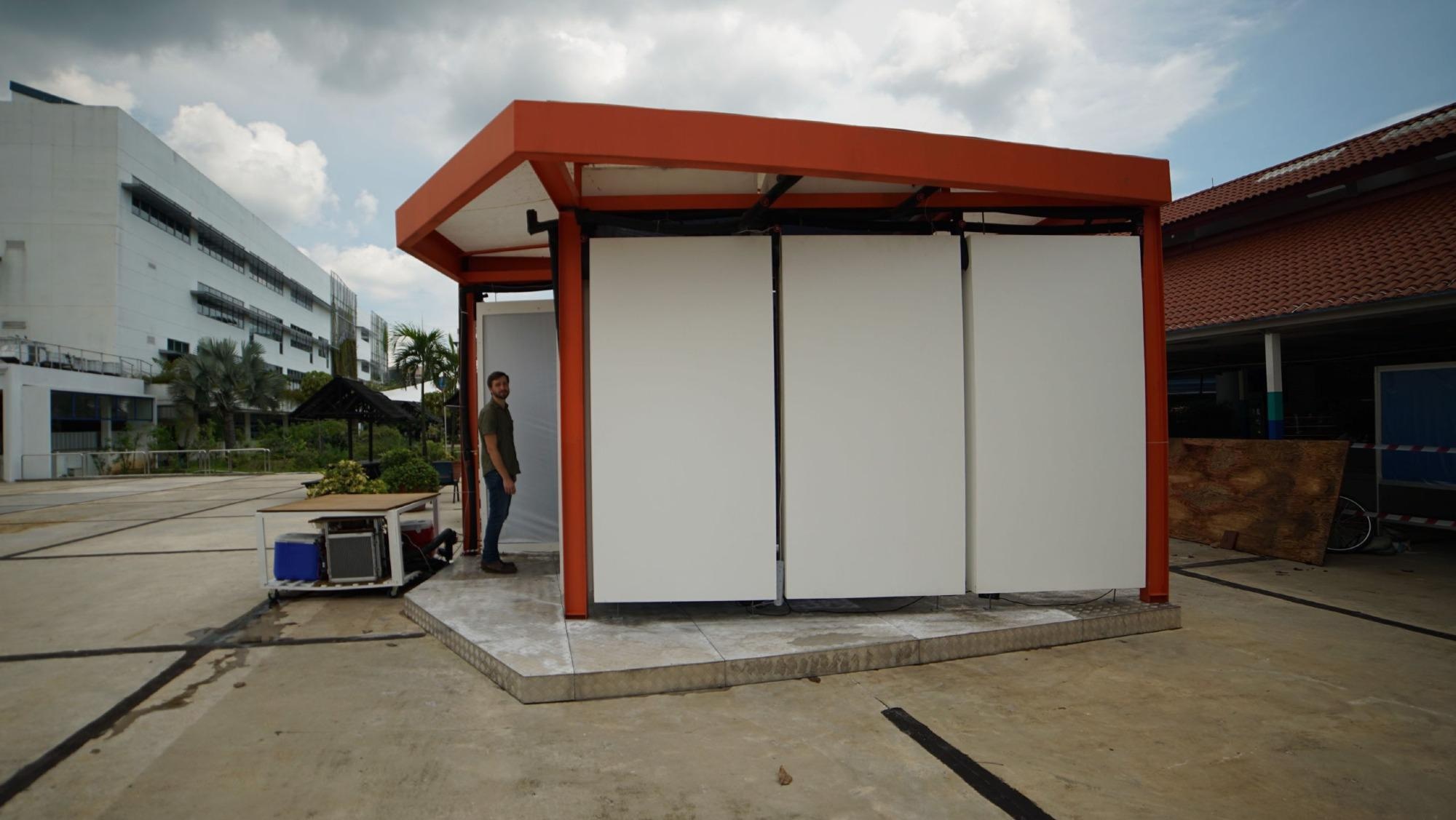Apr 21 2021
A new study by the University of British Columbia (UBC) in collaboration with the University of Pennsylvania and Princeton University proposes a novel system of chilled panels that can substitute air conditioning and can also help decrease the threat of indoor disease transmission.
 Completed exterior of the Cold Tube. Image Credit: Lea Ruefenacht.
Completed exterior of the Cold Tube. Image Credit: Lea Ruefenacht.
The air conditioning needs in the world’s 60 most populated cities were estimated by the research team—together with the extra ventilation needed as a result of COVID-19. They then took a comparison of the energy expenses with their cooling technique, which involves using natural ventilation and the chilled panels.
Reported in the COVID-19 edition of the journal Applied Energy, the study findings revealed that the alternative solution could save up to 45% of the energy needed, while guaranteeing that rooms are refreshed sufficiently and the occupants of the building feel comfortable.
According to Dr Adam Rysanek, co-author of the study and a professor in the school of architecture and landscape architecture at UBC, several public health guidelines, as well as building industry bodies, suggest increasing the flow of fresh, outdoor air into buildings to decrease the threat of spreading COVID-19 and other diseases.
However, if we continue to rely on conventional HVAC systems to increase indoor fresh air rates, we may actually double energy consumption. That’s the nature of conventional HVAC.
Dr Adam Rysanek, Study Co-Author and Director, Building Decisions Research Group, Faculty of Applied Science, University of British Columbia
“Alternatively, we can encourage people to install new types of radiant cooling systems, which allow them to keep their windows open even when it’s hot outside. These alternative systems can provide a sufficient level of thermal comfort, increase protection against disease while lessening the impact on the environment,” added Rysanek.
Previously, Rysanek and his collaborators exhibited their cooling system—the “Cold Tube”—in the hot and humid climate of Singapore. They constructed a public pavilion that featured a system of chilled tubes sealed inside a condensation-preventing membrane. This enabled occupants to feel relaxed, and even cold, without altering the air temperature around the human body.
You can think of it as lean A/C—or, even better, as a green alternative to energy-guzzling air conditioning.
Dr Adam Rysanek, Study Co-Author and Director, Building Decisions Research Group, Faculty of Applied Science, University of British Columbia
Toronto is considered as one of the cities listed in the new analysis, similar to Paris, New York, Mumbai, Miami, and Beijing. Peak summer temperatures can go beyond 35 °C (95 °F) in all these cities.
A key impact of climate change is the accelerating rise in average and peak temperatures, particularly in urban areas. We are expecting the appetite for indoor cooling will ramp up in the years ahead. Yet, if we want to mitigate urban heat and ensure people are healthy and comfortable while reducing our energy use, we need to seriously consider revolutionizing our historical approach to air-conditioning.
Dr Adam Rysanek, Study Co-Author and Director, Building Decisions Research Group, Faculty of Applied Science, University of British Columbia
Rysanek points out that, although chilled panel systems have been there for several decades, adding the unique membrane designed by the research group could be crucial to making it a commercially feasible alternative to conventional HVAC systems in all climates.
Journal Reference:
Aviv, D., et al. (2021) A fresh (air) look at ventilation for COVID-19: Estimating the global energy savings potential of coupling natural ventilation with novel radiant cooling strategies. Applied Energy. doi.org/10.1016/j.apenergy.2021.116848.
Source: https://www.ubc.ca/